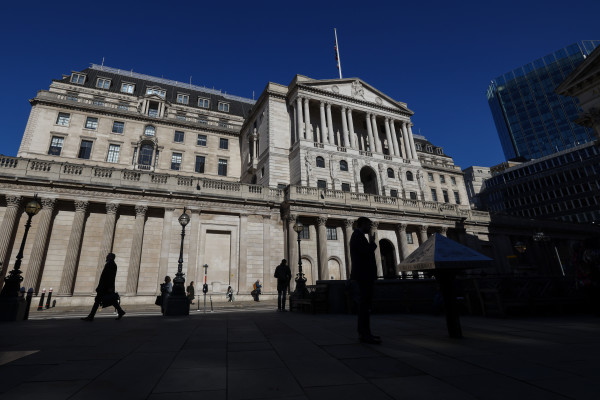A member of the Bank of England's monetary policy committee has suggested interest rates could rise again in May to curb spiralling inflation.
Speaking at a Bank of England webinar Catherine Mann, a former chief economist at the OECD who joined the MPC last year, said the cost of living was likely to continue rising sharply into 2023 and that action would be needed by the central bank sooner rather than later.
The MPC is due to meet on Thursday, May 5 to decide whether to increase interest rates again.
Mann, who voted for a 0.5 point rate rise in February when the majority of the MPC voted for a smaller 0.25 point rise, said her "central concern" was "the domestic inflation ratchet" - a situation where price increases prompt more price increases in a vicious circle.
She said: "Tracking these price expectations and forecast revisions is of paramount importance since inflation ultimately is due to firms systematically able to raise their prices.
"Unfortunately, more modest price outcomes for some products will not bring headline inflation near to target for 2022 or even for most of 2023 because the energy price shock is so large and the mechanism of the Ofgem price cap could drag it out.
"Monetary policy needs to keep inflation expectations anchored; by doing so now, less tightening will be required later, when demand may still be weak."
The Bank has increased its base rate three times in the past five months - raising it to 0.75 per cent in March - as inflation rises ever further above the 2 per cent target.
The latest inflation data shows the cost of living rose to a 30-year high of 7 per cent in the 12 months to March, up from 6.2 per cent in February.
Explaining her reasoning behind voting for a sharper rate rise, Mann said: "Front loading the policy reaction did not necessarily imply a higher rate in the long-run – my focus was on the slope of the policy path. A bold tightening followed by a hold, or even a modest rate reversal appeared to me to be appropriate to address inflation expectations.
"In sum, I argued that a front-loaded tightening path was needed to send a strong signal of commitment to the inflation target so as to forestall the embedding of inflation expectations in wages and prices."
She said that increasing rates sharply and then cutting them back should not necessarily be viewed as a mistake or as a "harbinger of a recession" but should instead be viewed as "responsiveness" to inflation expectations.
damian.fantato@ft.com

